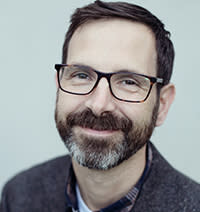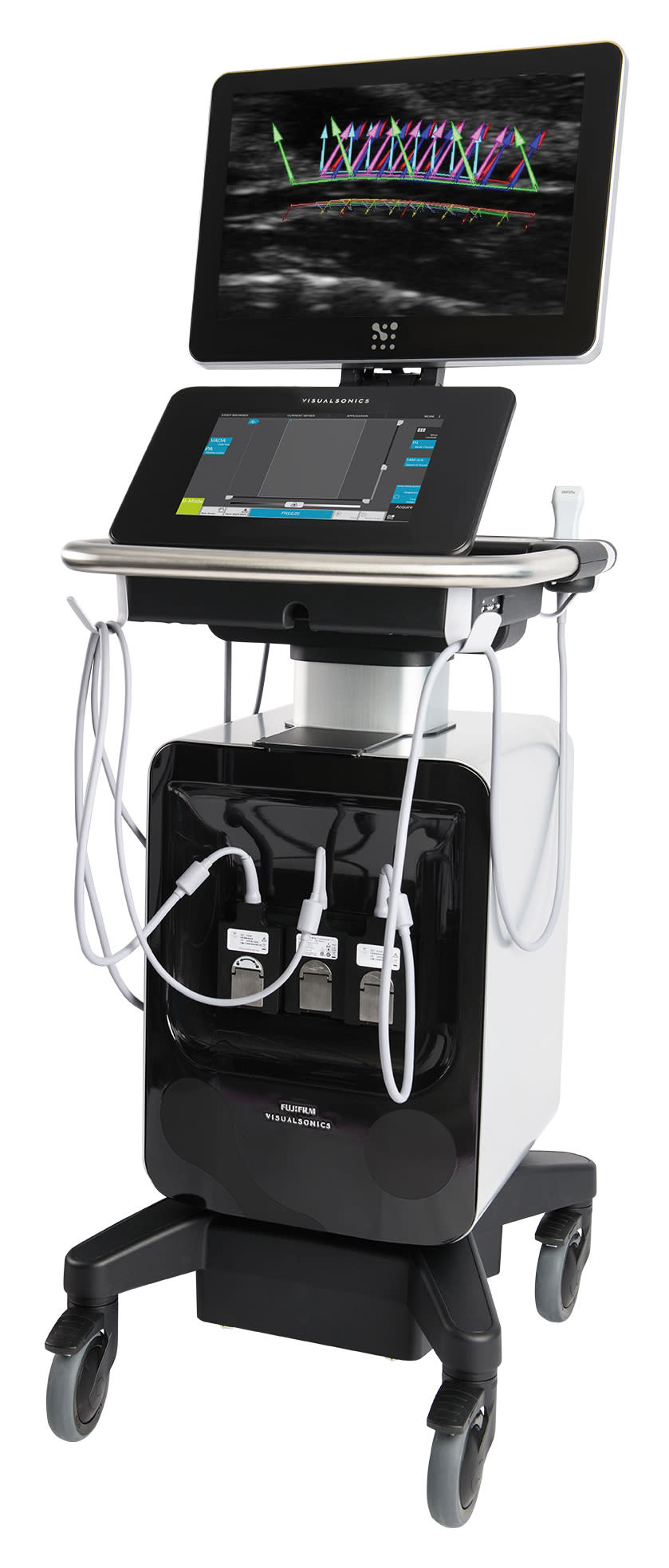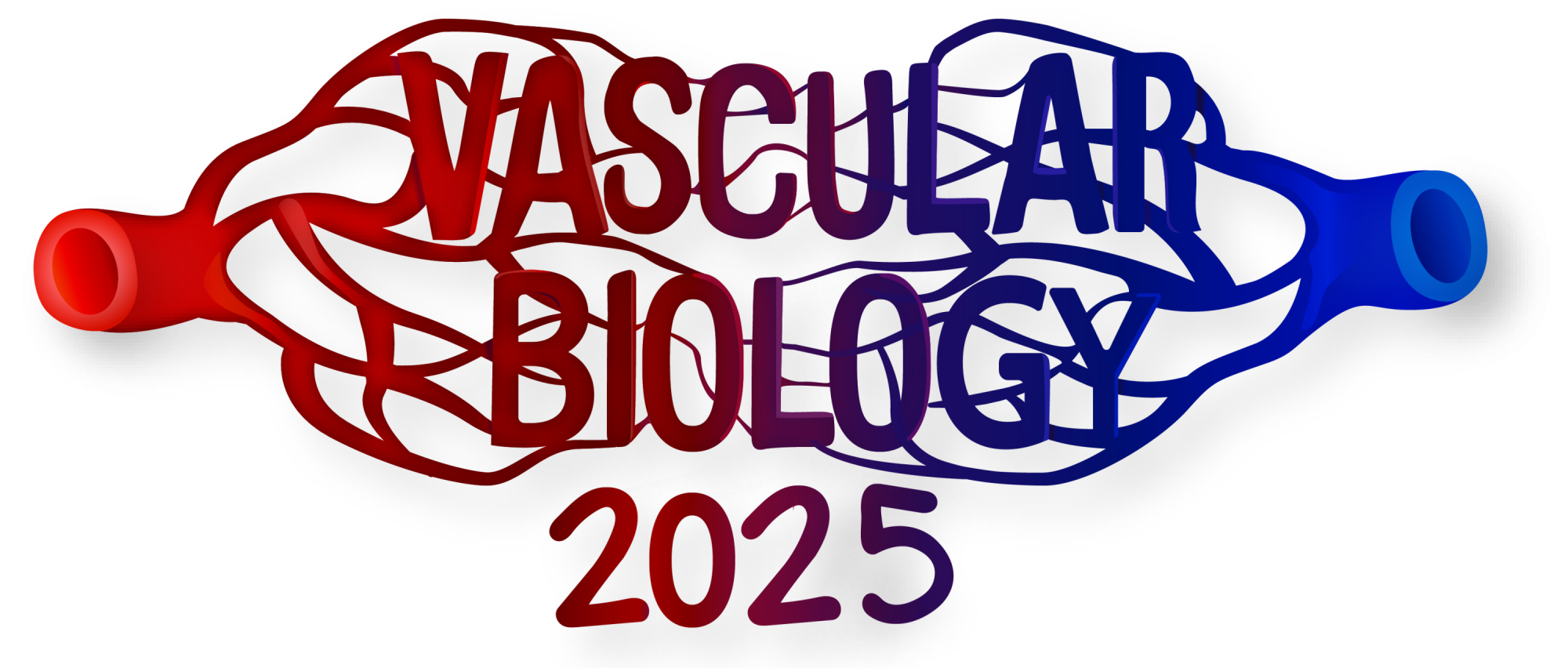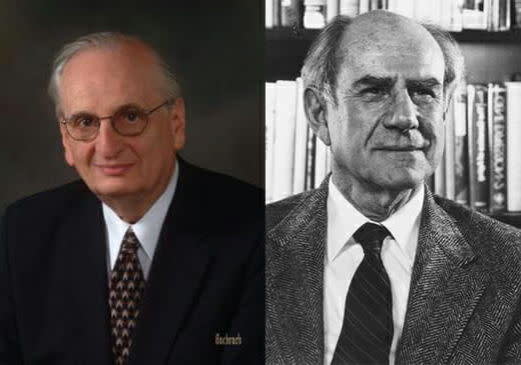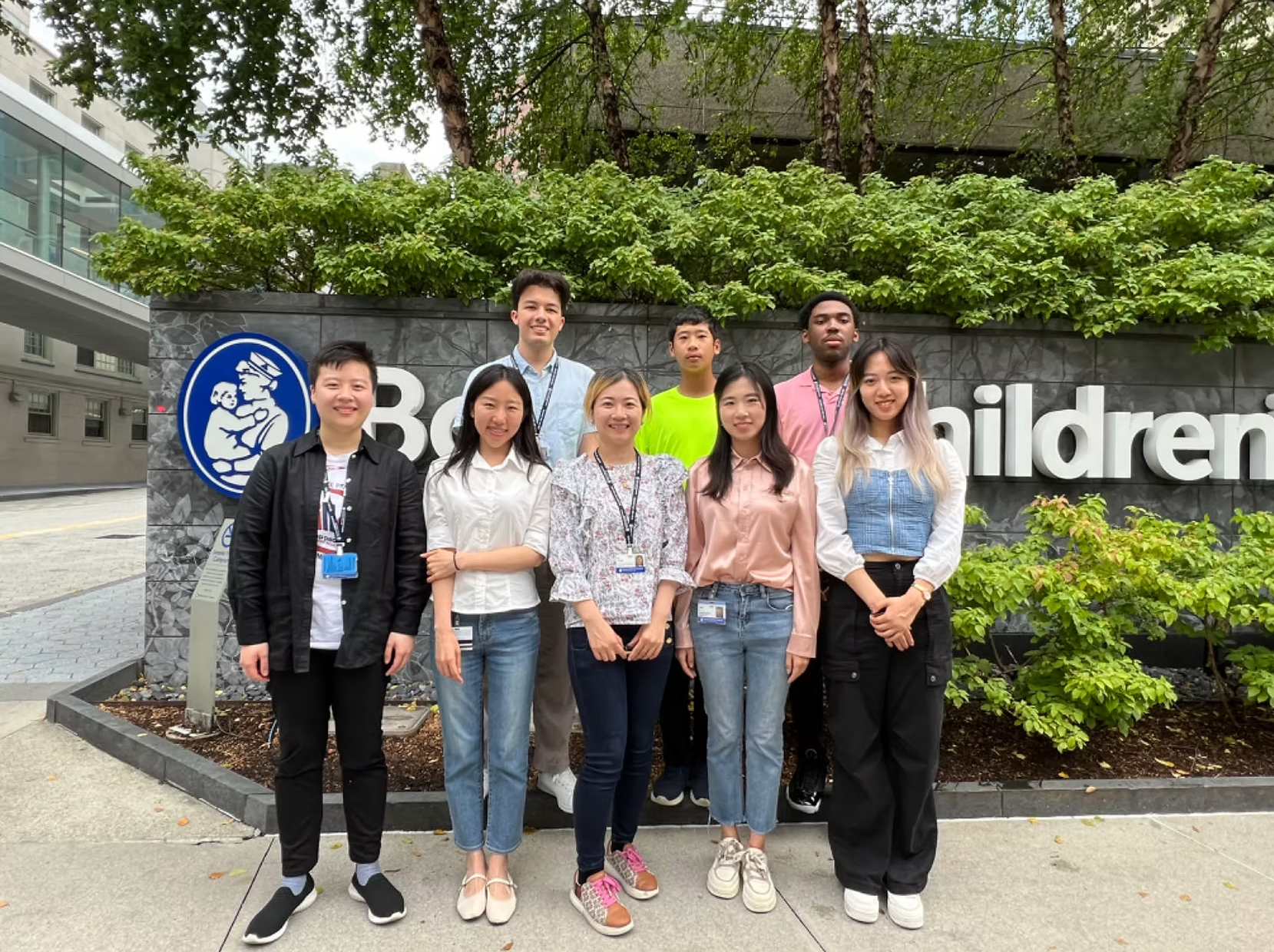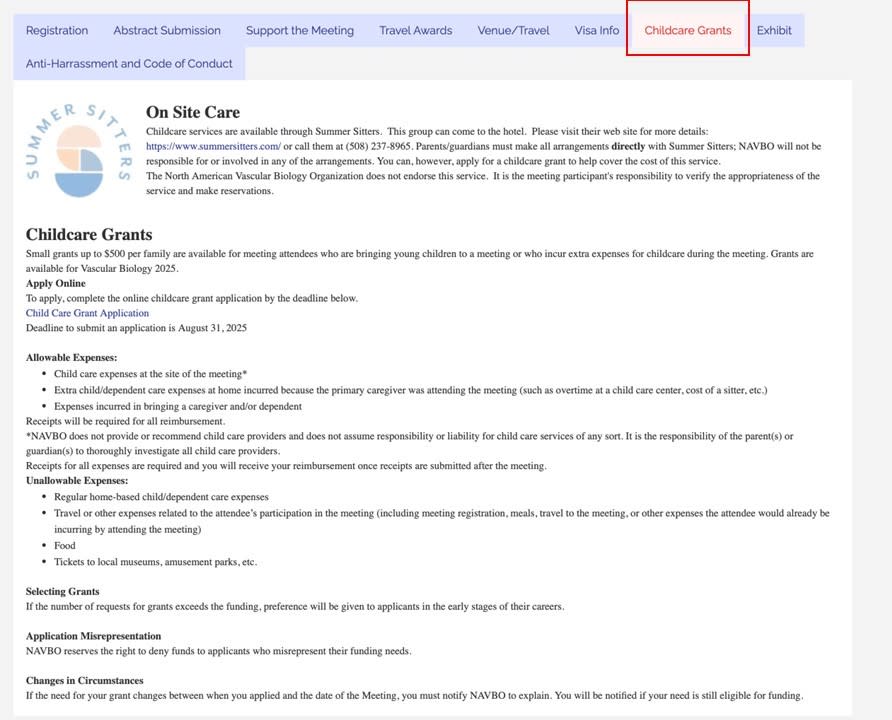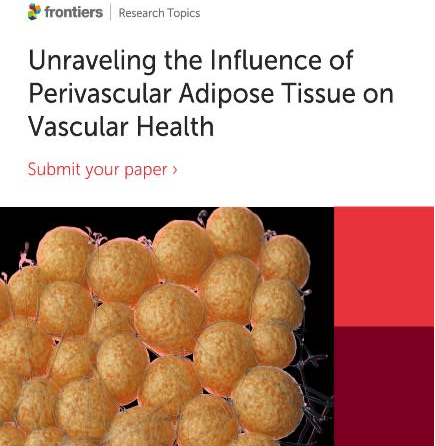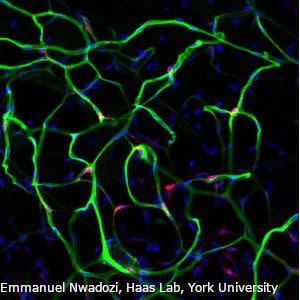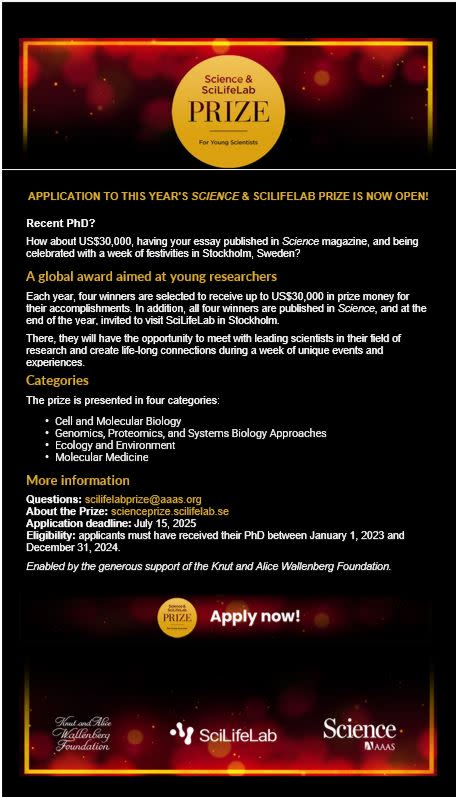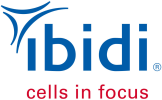|
View this Newsletter Online Visit the NAVBO Website |
|
|
|
|
May 2025 |
|
President's Message |
|
|
NAVBO has been advocating for research wherever it can. If you live/work in the US, we encourage you to reach out to your congressperson and senators and let them know how important research and innovation is to the health and prosperity of future generations.
Jason Fish, PhD President, NAVBO
Helpful links: Contact information for US Congress Members More tools for Advocacy from Research!America |
|
|
NEW - Technology Workshop |
|
Aortic Remodeling and Thrombus Deposition in Murine Aneurysms and Dissections |
|
|
|
Join us on May 20 at 1:00pmET for NAVBO's first Technology Workshop featuring the Vevo F2 from FUJIFILM VisualSonics, Inc.
This workshop is free to all. To register, go to:
Our presenter is: Cortland Johns, PhD Candidate Physician-Engineer Trainee Purdue University |
|
|
|
|
NAVBO Conferences in 2025 |
|
|
|
Register online thorugh June 10 - Register Now! |
|
|
|
Registration now open for Vasculata and Vascular Biology 2025!!! |
|
July 7-10, 2025 at the |
|
Vasculata abstracts due May 15 - Submit Your Abstract |
|
|
|
|
|
Save $$$ - register by 6/30 for Vascular Biology to get the Super Early Bird Discount! |
|
Travel Awards for NAVBO Trainees |
|
NAVBO Sponsored Trainee Travel Awards to Vascular Biology Gordon Research Conferences
Atherosclerosis - Genetics, Pathophysiology, and Translation (June 22-27, 2025 in Castelldefels, Barcelona, Spain) For information about this meeting, visit the web site (https://www.grc.org/atherosclerosis-conference/2025/) Application due May 25, 2025.
Angiogenesis and Social Interactions with Neighboring Cells and Tissues in Health and Disease (July 27-August 1, 2025 in Newport, RI) For information about this meeting, visit the web site (https://www.grc.org/angiogenesis-conference/2025/) Application due June 29, 2025. Submit an application directly to NAVBO (follow this link to the form)
For more information, click here and go to the "Travel Awards - Other" tab. |
|
Call for Nominations |
|
|
We are seeking nominations from the membership for the 2026 Earl P. Benditt and Judah Folkman Awards, which will be presented at Vascular Biology 2026.
Nominations are due July 15, 2025. See the web site for more details. |
|
|
|
|
This award recognizes a Junior Faculty, who is within five years of their first independent investigator position or within five years of an independent research position in academia, government, or industry. An applicant must be |
|
submitting and presenting an abstract at the upcoming annual meeting. The award recipient will present their abstract in a 20-minute presentation usually within the Award Lecture session. Submit an abstract to Vascular Biology 2025 and complete an award application. For the 2025 award, the first appointment needs to be January 1, 2020 or later.
THE SPRINGER JUNIOR INVESTIGATOR AWARD IS MADE POSSIBLE BY SUPPORT FROM ANGIOGENESIS |
|
Lab of the Month |
|
|
Month - May 2025 The Lab of Dr. Ke Yuan This month we are highlighting the lab of Dr. Ke Yuan, Assistant Professor at Boston Children's Hospital.
Find out more about her lab by visiting her page in our Lab of the Month listing. |
|
Did You Know...? |
|
. . . that NAVBO provides childcare grants for young parents to attend Vascular Biology 2025. |
|
Spotlight on Trainees |
|
National Postdoctoral Association professional development offerings The National Postdoctoral Association is entering its fourth year of offering a suite of workshops fostering development of crucial professional skills for trainees at the postdoctoral level. Courses in the SmartSkills series are free to postdocs who are members of the NPA. Courses upcoming for 2025 include Surviving and Thriving in the First Year as a Faculty Member (May 27), How to Set and Achieve Financial Goals as a Postdoc (June 24), Strategies for Effective Communication with Advisors/Mentors (July 22), and Becoming a Good Mentor and Mentee (August 26). Sessions on additional topics are scheduled into the fall. |
|
Member News |
|
Welcome to our New Members: Hasan Erbil Abaci, Columbia University Irving Medical Center James Baish, Bucknell University Luis Castro, Washington University Esteban Delgado, Temple University Miguel Angel del Pozo, CNIC (Spanish National Center for Cardiovascular Research) Russell Elkus, Center for Molecular Medicine and Genetics Louise Frausto, LSUHSC Edward Guzman, Stanford University Liqing Huang, Cornell University Jacinta Kalisch-Smith, University of Oxford Daniel Lee, Washington University School of Medicine in St. Louis Aroa Martínez de Musitu, Wayne State University Ololade Ogunsina, University of South Florida School of Medicine Jingjing Pang, Lemole Center for Integrated Lymphatics and Vascular Research Summer Simeroth, Oklahoma Medical Research Foundation Karan Srikrishna, Ohio University Grace Tartaglia, Yale University Xiao-Yu Tian, The Chinese University of Hong Kong Pengchun Yu, Oklahoma Medical Research Foundation |
|
Recent Member Publications |
|
An endothelial SOX18–mevalonate pathway axis enables repurposing of statins for infantile hemangioma Infantile hemangioma (IH) is the most common tumor in children and a paradigm for pathological vasculogenesis, angiogenesis, and regression. Propranolol, the mainstay of treatment, inhibits IH vessel formation via a β-adrenergic receptor-independent off-target effect of its R(+) enantiomer on endothelial SOX18 - a member of the SOX (SRY-related HMG-box) family of transcription factors. Read More
Changes in vascular identity during vascular remodeling Background: Vascular remodeling is a dynamic process characterized by changes in vascular identity that impact vessel structure and function. Molecular markers define cellular identity as arteries, veins, and lymphatic vessels: Ephrin-B2 and Notch determine arterial identity, EphB4 and COUP-TFII determine venous identity, and Prox1 determines lymphatic identity. Read More
Sustained Tenascin-C Expression Drives Neointimal Hyperplasia and Promotes Aortocaval Fistula Failure End-stage kidney disease (ESKD) impacts over 740,000 individuals in the U.S., with many patients relying on arteriovenous fistulae (AVF) for hemodialysis due to superior patency and reduced infections. However, AVF patency is reduced by thrombosis and neointimal hyperplasia, yielding a one-year patency of only 40-50%. AVF were created in wildtype (WT) and Tnc knockout (Tnc-/-) mice, and proteomic analyses were conducted to identify protein changes between sham and AVF WT tissue. Read More
Embryonic Vascular Dysgenesis: The Origin of Proximal Femoral Focal Deficiency Proximal Femoral Focal Deficiency (PFFD) is the most proximal manifestation of a syndrome involving Congenitally Shortened lower Limbs (CSL), which also affects the fibula and midline metatarsals. This pattern of congenital human long bone deficiencies corresponds, in a time dependent manner, to the failed ingrowth pathways of new blood vessels of the growing embryonic limb. Read More
Mixed lineage kinase (MLK) controls tumor development and angiogenesis Cancer is among the leading causes of death in the USA and worldwide. Solid tumors require the formation of new blood vessels (angiogenesis) for their growth. The endothelium plays a crucial role in angiogenesis and tumor progression. Hypoxic stress generated by tumors can activate stress kinases such as mixed lineage kinases (MLKs). Read More
If you recently published a paper and would like to have it included in a future issue of the NAVBO NewsBEAT and/or on our web site. Please send the citation to membership@navbo.org |
|
Industry News |
|
NASEM offering workshop on research security measures The National Academies of Sciences, Engineering, and Medicine has organized a workshop to consider potential measures of effectiveness and performance for assessment of research security and protection efforts in higher education, with input from range of Federal agencies. The workshop will be held on May 22 and 23, 2025, at the NAS Building, 2101 Constitution Avenue, NW, Washington, DC 20418. A remote participation option is available. The full agenda and previous publications relevant to the bioeconomy can be found online.
AAMC leadership programs available this spring and summer The Association of American Medical Colleges is offering new virtual programs to help faculty and administrative and professional staff enhance their leadership effectiveness and drive organizational success. Leading for Impact (July 22-24, 2025) is designed for individuals leading an administrative unit or mission area and tasked with shaping organizational culture and implementing strategic vision. Elevate Your Potential in August, aimed at individual contributors or those seeking foundational leadership training, will focus on cultivating self-awareness, personal effectiveness, and influence without authority.
Professional scientific organizations express apprehension about FY2026 federal budget Organizations spanning the biomedical disciplinary spectrum are voicing concern over the cuts to NIH (~40%) and NSF (~57%) present in the Trump Administration’s proposed budget for FY2026. For example, in a May 2 press release, the American Society of Human Genetics warns that inadequate funding for agencies within HHS will cripple research and clinical trials on cancer, heart disease, diabetes, and rare genetic disorders. These disruptions also threaten to have a chilling effect on the next generations of researchers, putting decades of scientific progress at risk and discouraging early-career professionals from pursuing scientific careers. The US, notes the ASGH, risks falling behind globally in technology development and innovation. |
|
Call for Papers |
|
|
Frontiers In Cardiovascular Medicine Research Topic: Advances in Vascular Malformations: From Molecular and Cellular Mechanisms to Clinical Therapies and Management Topic Editors: Jennifer Fang, Elisa Boscolo, Miguel Lopez-Ramirez, Alexandre Dubrac NAVBO is sponsoring this Research Topic through our partnership with Frontiers in Cardiovascular Medicine. Vascular malformations refer to a wide range of structural abnormalities that can affect all vessel types in the blood and vascular lymphatic trees – including arteries, capillaries, and veins. Vascular malformation diseases can be inherited or can occur spontaneously; however, in all cases, resulting vascular lesions can significantly compromise cardiovascular and organ function and reduce patient quality-of-life. In this Research Topic, we aim to gather contributions from scientists and clinicians to share recent advances in our understanding of the biology and treatment of vascular malformations. Ultimately, our goal is to accelerate the development of new therapeutic treatments for patients with vascular malformations affecting blood or lymphatic vessels. Specific areas of interest are listed on the webpage: https://www.frontiersin.org/research-topics/70339/advances-in-vascular-malformations-from-molecular-and-cellular-mechanisms-to-clinical-therapies-and-management If you are interested in participating in this Topic, we encourage you to consider submitting a proposed manuscript summary by June 28, 2025.
|
|
|
|
|
The collection focuses on phenotypic transitioning of vascular and immune cells, such as endothelial-to-mesenchymal transitions with specific emphasis on the role of immune and inflammatory responses in vascular remodeling, genetic and epigenetic factors, environmental and lifestyle factors, personalized medicine approaches and the interplay between biomechanical forces and endothelial health in vascular remodeling. Editors: Drs. Laena Pernomian (University of South Carolina) and Vanessa de Fátima Borges (Cedars Sinai Medical Center, Los Angeles). Submission deadline: March 12, 2025. |
|
|
|
The collection examines the interplay between perivascular adipose tissue (PVAT) and vascular endothelium, particularly in the context of energy imbalance, PVAT's secretome and mechanical properties. The potential of PVAT as a therapeutic target and/or a source of diagnostic biomarkers for cardiovascular diseases are also of particular interest. Editors: Drs. Eduardo Nava (University of Castilla-La Mancha, Ciudad Real, Spain), Maria Andreia Delbin (State University of Campinas, Campinas, Brazil), Ning Xia (Johannes Gutenberg University Mainz, Mainz, Germany) and Stephanie Watts (Michigan State University, East Lansing, USA). Submission deadline: May 30, 2025. https://www.frontiersin.org/research-topics/65161 |
|
|
|
|
|
BMC Biology is calling for submissions to theirr Collection on vasculogenesis and angiogenesis in vivo and in vitro. This Collection aims to bring together cutting-edge research that explores the cell and molecular mechanisms and therapeutic applications of blood vessel formation in health and disease. Tara Haas, York University, is one of the guest editors. Deadline for submission is August 22, 2025. Download the flyer for more information.
|
|
NAVBO Corporate Partners |
|
NAVBO Corporate Member |
|
Calendar of Events |
|
|
Job Postings |
|
|
|
|
North American Vascular Biology Organization |


